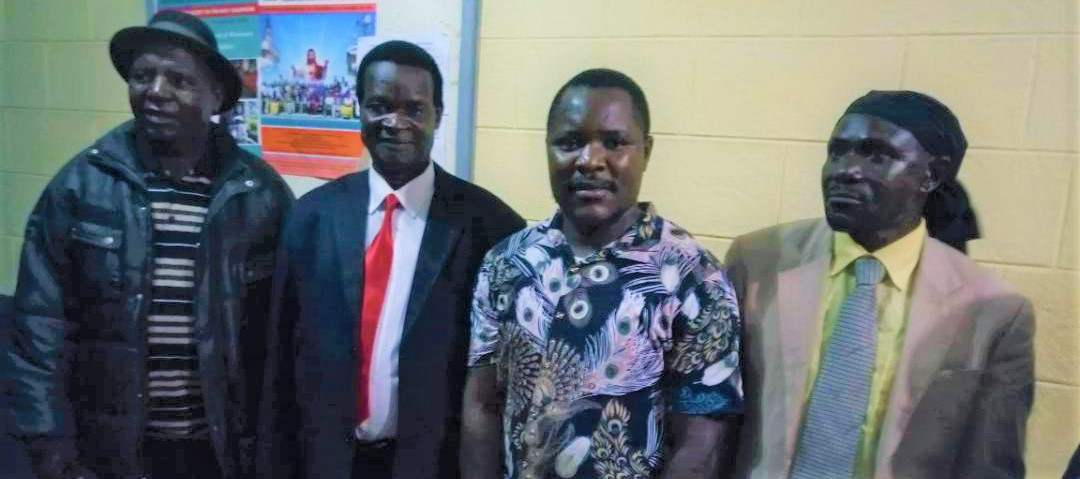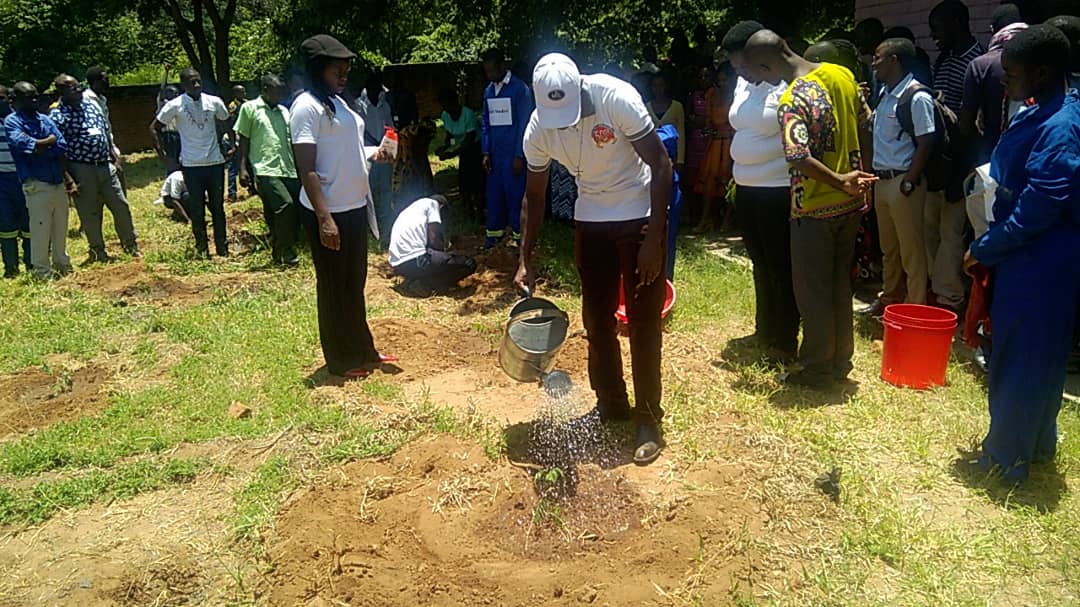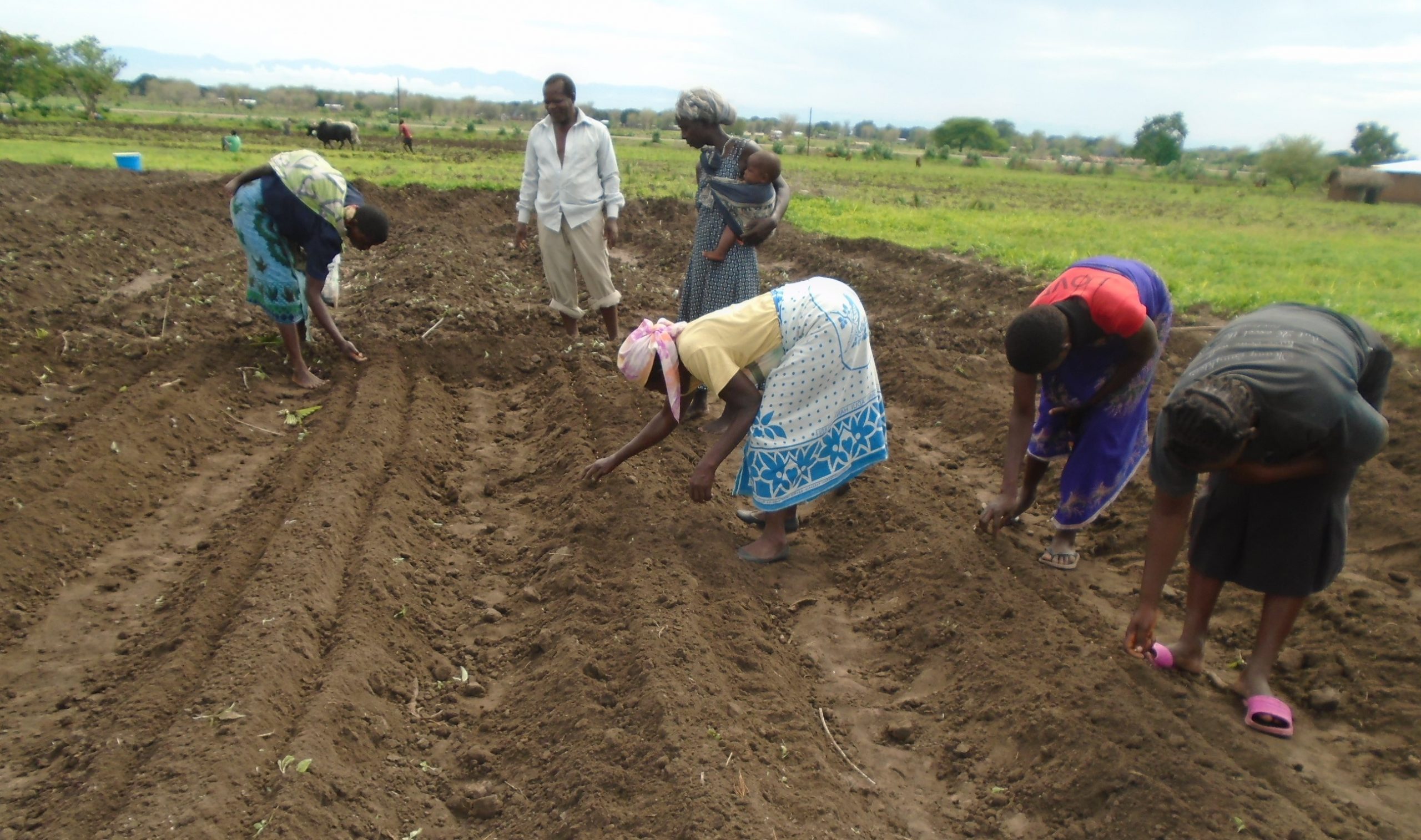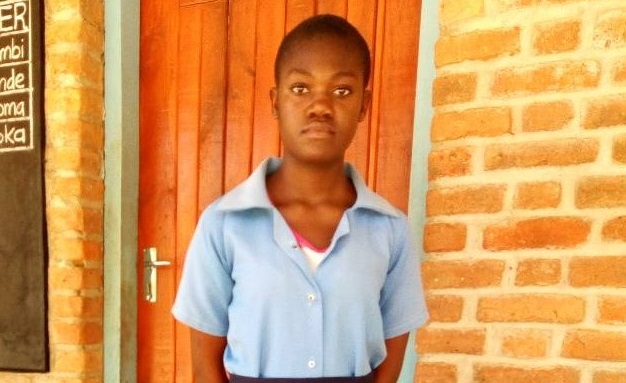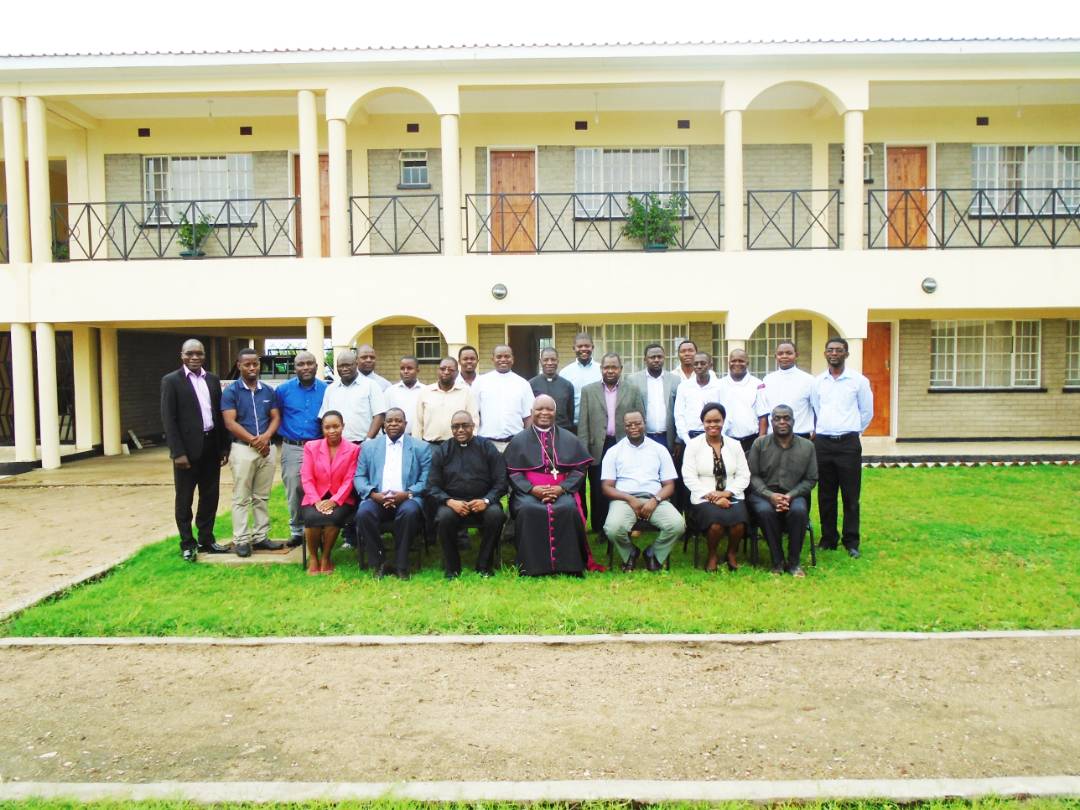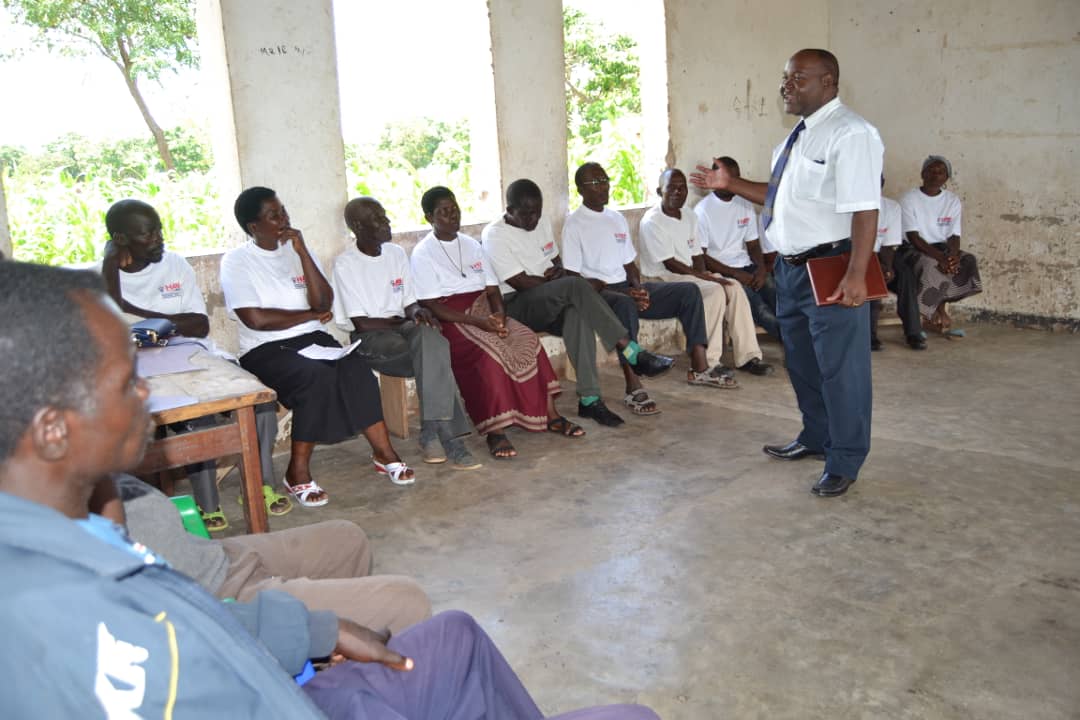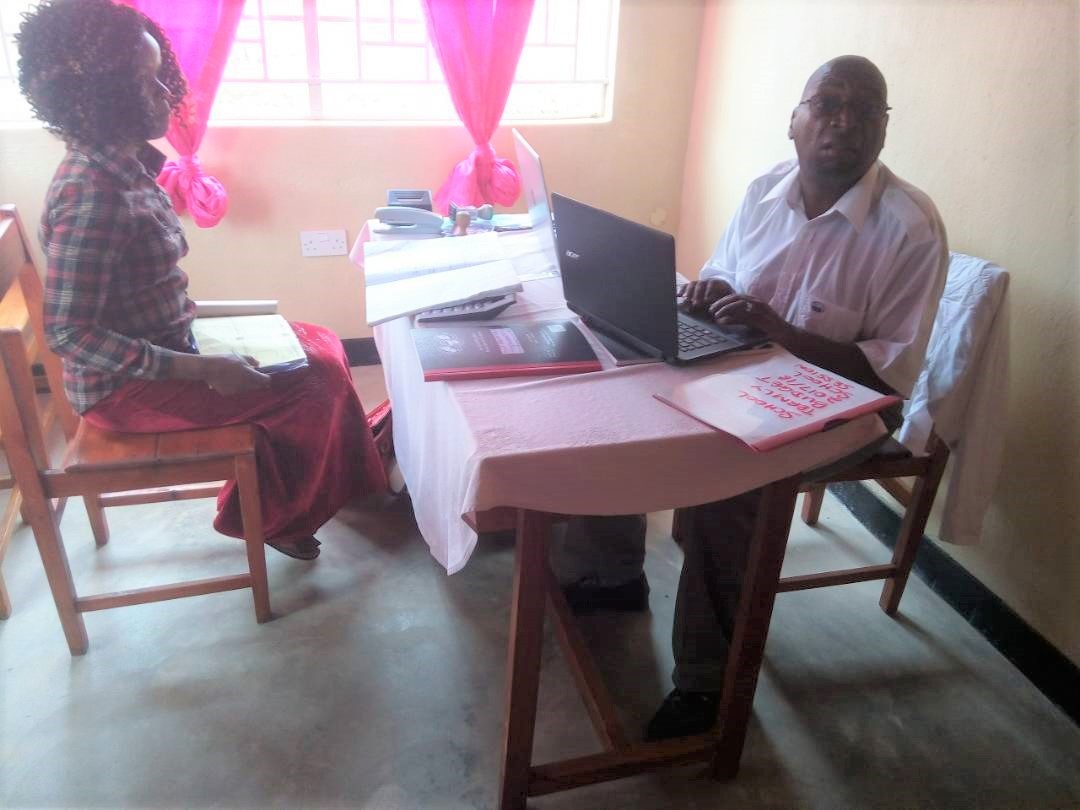Senior Traditional Leaders Call for an End to Child Marriages in Chitipa
By Alick Gondwe
Traditional leaders in Chitipa are playing a leading role in the campaign aimed at eliminating child or forced marriages in the areas under their jurisdiction.
Senior Chief Kameme and Traditional Authorities Misuku and Mwaulambya made the revelation during a live talk show, on Tuntufye FM, organised by the Justice and Peace Desk.
Taking his turn, Senior Chief Kameme said child marriage cases grow like cancer and that as a chiefdom they are committed to remove it to ensure that the girl child is educated.
“Village headmen in my area have stepped up efforts towards the protection of rights of girls by openly condemning child marriages and making sure that perpetuators are arrested and prosecuted accordingly,” said Senior Chief Kameme.
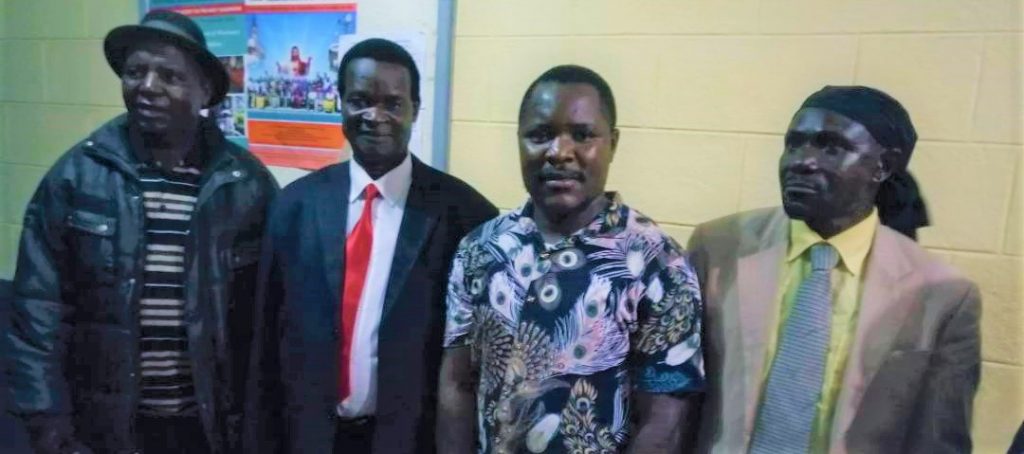
On the other hand, Chief Mwenemisuku called for the need to get rid of negative cultural practices.
“We need to uphold good cultural practices and discard ones that are detrimental to the well-being of our communities,” exhorted Chief Mwenemisuku.
“I always tell parents and community leaders that marrying off children at an early age is counterproductive, apart from being a violation of human rights. It is like eating a seed instead of planting it,” added Mwenemisuku.
Chief Mwabulambya called on the need to change mind set, especially on parents who regard a girl child as a source of income. He said the girl child has a lot of potential but that can only be realized with the attainment of a good education.
CCJP is implementing a three-year project in Chitipa with purposes of promoting women and children’s rights with funding from Misereor.
Miracle Technical Institute in Tree Planting Exercise
By Norbert Mzembe
In living the spirit of Laudato Si, which calls for care of the environment, Miracle Technical Institute in Karonga embarked on a tree planting exercise to replace trees cut in the course of construction work and practical training in carpentry and joinery, and bricklaying.
The institute, which falls under the Catholic Diocese of Karonga, partnered with Technical Entrepreneurial and Vocational Training Authority (TEVETA) to carry out the exercise during which 3000 seedlings were planted at the school’s campus.
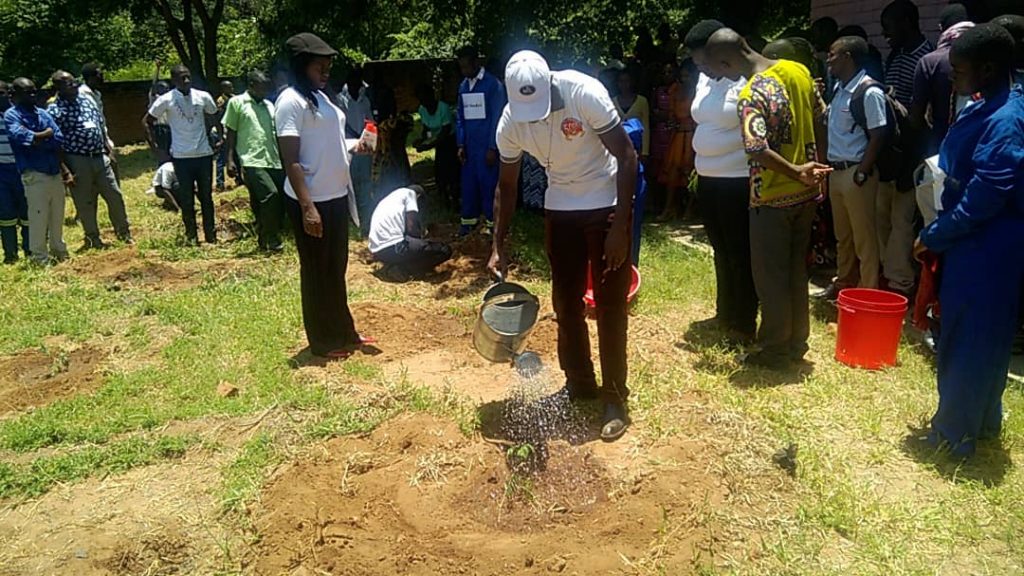
Speaking during the launch of the exercise, Brother Pachalo Joseph Mfune, Director of the institute admitted that the school has for decades been an enemy of the environment by cutting down trees without replacing them. He said the management decided to embrace nature by replanting trees where they are cut, because the college relies much on trees for most of its activities.
“Over the past ten years the college has some many activities that led to excessive cutting down of trees for the construction work without replacement,” he said.
TEVETA Regional Service Centre Manager for the north, Conceptor Kachoka said it remains their responsibility to nurture the environment by planting trees, especially at Miracle Technical Institute, because they promote technical courses like carpentry and Joinery (CJ), bricklaying and others which demand more trees.
She then urged students and all members of staff at the college to look after the trees they have planted for the benefit of the future generation.
During the exercise, at least 3000 tree seedlings were planted within the college campus and every student from each department was assigned to plant eleven (11) seedlings which they are expected to take care of.
TEVETA thereafter, promised to give tokens of appreciation to students whose trees will survive as a way of motivating them to nurture the trees.
This was the first time for Miracle Technical to replace the trees that the college has been using in the construction of facilities such as classroom blocks and furniture.
Development Desk Using Demonstration Plots to Scale up Adoption of Climate Smart Agricultural Technologies
By Franklin Msiska (Development Desk Officer)
The Development Desk in collaboration with the Government Crops, Land Resource and Extension Departments has mounted 94 demonstrations to increase adoption of Climate Smart Agricultural (CSAs) practices under Karonga Diocese’s Integrated Rural Development Project.
Targeting 2,400 smallholder farmers, the project is implemented in Traditional Authorities Mwawulambia, Mwenemisuku and Mwenewenya in Chitipa District and Traditional Authority Kyungu in Karonga District.
This three-year project will help small scale farmers have increased annual agricultural production. In order to adapt to climate change effects small scale farmers are being trained to adopt sustainable agricultural practices which will help them increase yields even when they face extreme weather conditions such as drought during the production season.

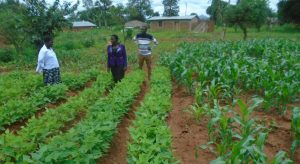
Key CSA practices promoted under the project are: planting pits, mixed cropping, use of manure, conservation agriculture (soil cover), crop rotation, agroforestry, and erosion control. The project is using the same demonstration plots also to promote technologies that would minimize the impact of climate change like drought, increased incidences of pest and disease outbreaks etc. These technologies are early maturing, disease resistance, and high yielding varieties in maize, soya beans, pigeon peas, cow peas, and sugar beans.
The demonstration plots are being used to train farmers on how they can use integrated pest management to address the current issue of fall army worms which is also largely connected to the issue of climate change.
The demonstration will also act as trials where these practices will be rotated in 8 plots per site for three years so that farmers can witness the changes taking place in each plot as a result of implementing the practices promoted by the project.
At the end of the project, which is funded by Misereor Germany, at least 65% of the targeted small scale farmers are expected to adopt and continue practicing at least three of the promoted CSA practices.
Kaseye Girls Shine in MAWU Awards
By Lonely Mwandira (Methodology Advisor St Michael’s parish)
It was all smiles when Twambilire Ng’ambi was named the overall winner in the Malawi Writer’s Union (MAWU) Northern Chapter short story writing competition for secondary school students.
The competition was organized by the union as part of its efforts in promoting reading and writing culture in the country. Speaking during the ceremony hosted by Mzuzu University (Mzuni), chairperson of the organizing committee, Mashallo Samilo, expressed concern over the dwindling interest in creative writing in the country.
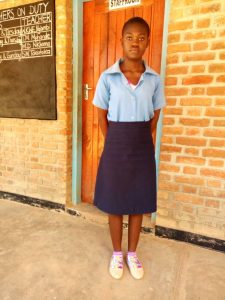
“It is a concern that this is the status quo despite an enabling environment for writers since multiparty democracy,” he said. Samilo said this is one of the reasons MAWU sought sponsorship to conduct the competition.
“A Better World, is well written story. It gives insight into the central character’s troubled mind with such honesty that one can relate with her and her abusive past,” said Wesley Macheso in praise of the winning story. Macheso is a lecture in literature and creative writing at Mzuzu University.
The story writing competition was sponsored by Malawi Revenue Authority (MRA) to the tune of K150 000.00.
The event was graced by Mzuzu City Council Deputy Mayor Alexander Mwakikunga, who encouraged students to write and read more to improve themselves and the world around them.
Twambilire went away with MAWU certificate of recognition, copy of Wesley Macheso’s young adult novel, and cash prize worth Forty Thousand Kwacha. The second prize winner was Chisomo Katchere from Mzuzu Government Secondary School and the third prize went to Tamika Chavinda from Mzuzu International Academy.
The young star from Kaseye is in form three, her dream is to shake shoulders with lecturers at College of Medicine where she desires to be a neurosurgeon. Despite being the better material for the Language Department, the 15 year old star said she is also doing well in sciences to make her dream come true.
Karonga Diocese Develops Consolidated Annual Programme for 2018
By Moses Raymond Kamanga
Walking the talk of embracing the centralised structure of running the Church in Malawi, Karonga Diocese takes a further stride by holding a joint planning meeting to come up with an annual consolidated programme for all the Commissions of the Diocese.
Opening the meeting, Bishop of the Diocese of Karonga, Rt. Rev. Martin Mtumbuka, stated the importance of the meeting and having an annual consolidated programme to make sure that each commission knows what other commissions intend to implement.
The meeting brought together all Parish Priests of the Diocese of Karonga, desk officers of the three commissions of the Diocese namely; Pastoral, Caritas and Finance Investments and Administration.
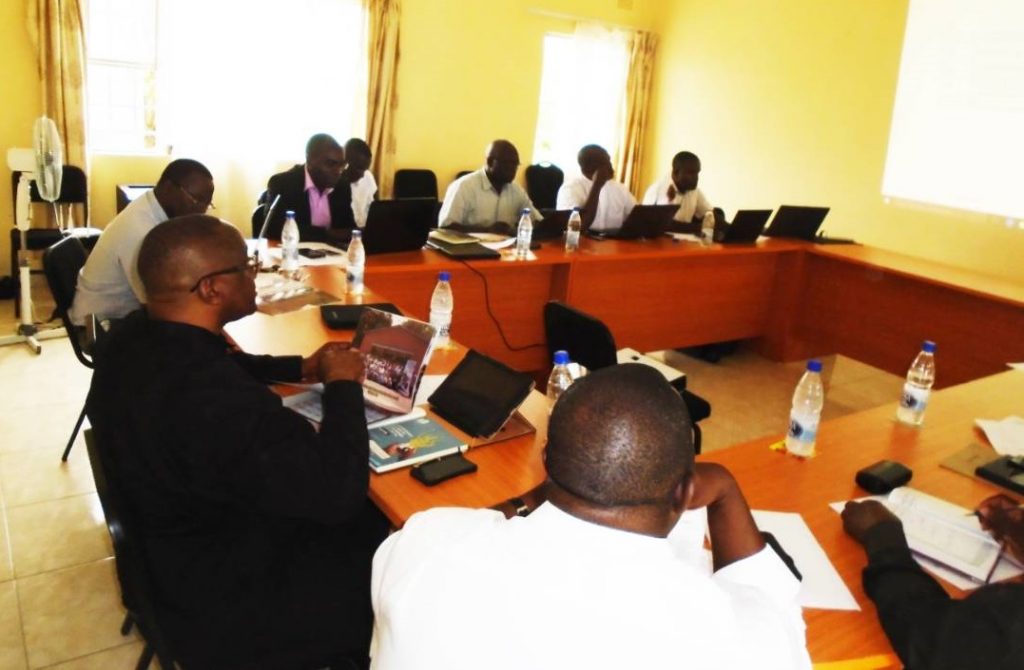
Taking the opportunity of the gathering, Bishop Mtumbuka announced the opening of Chisenga Health Centre under the Diocesan Health Department which will be run by Lusubilo Orphan Care. Speaking on the sidelines of the meeting, the Bishop explained that though the Health Centre will require patients paying something for treatment, the Chisenga community will also benefit more from Lusubilo Orphan Care services.
The Diocese of Karonga is privileged to have embraced the centralised way of running the Diocese to help the young diocese share resources and act as a unit in delivering spiritual and social development programmes to the Christians and all people within its area of jurisdiction.
Due to these strides, the Diocese has set a pace which other Dioceses in the Ecclesiastical territory of Malawi are emulating.
Primary Justice Project Reducing Cases of Gender Based Violence
By Norbert Tambalamtuwa Mzembe
Cases of gender based violence (GBV) are on the decline in Karonga with the help of the Primary Justice Project being championed being managed by the Justice and Peace Desk of Karonga Diocese.
This was revealed during the monitoring visit to Lupembe conducted by the Justice and Peace Desk in conjunction with the District Commissioner for Karonga District, Richard Hara, and other council officials.
Through the Primary Justice Project, the Justice and Peace Desk of the Diocese of Karonga supports the District Social Welfare Office to promote the use of informal justice systems like traditional courts and village tribunals to handle cases (e.g. gender based violence) that are non-criminal in nature.

In Lupembe area, the Justice and Peace Desk works with 20 community based educators (CBEs) to raise awareness on gender based violence and related issues and to support local tribunals.
Speaking during the monitoring visit, Hara said Primary Justice is the easiest and fastest way for people to access justice as it is close to them.
“People do not walk long distances to court and do not wait long for their cases to be judged. Justice come in time and near to the people on GBV issues. As such it creates time for them to concentrate on development activities,” Said the DC.
Monitoring and Evaluation Desk Officer at Karonga Diocese, Deodatus Muriya who also manages the Primary Justice project disclosed that the decline in GBV in the district is due to the existing mutual relationship with the CBEs that help civic educate people on the dangers of the malpractice.
Muriya also said that the project has reduced the number of cases going to formal courts as GBV cases are handled locally leaving the courts with very serious cases.
However, one of the CBEs, Mercy Ndovie said one of the challenges is that most of the village tribunals disregard the case record books for their reference when passing their verdicts.
Funded by the Department for International Development (DFID), through Lilongwe Archdiocese CCJP, the project is expected to run up to December 2018. It aims at promoting peace and order in families and work places.
Head Teachers Embrace ‘My Health My Right’ Clubs
By Vincent Bwinga (Field Officer)
Head teachers from 22 secondary schools in Chitipa and Karonga have embraced ‘My Health, My Right’ clubs as a way of assisting school going youths to realize and promoting their health rights.
The head teachers arrived at this during the briefing sessions conducted by the Justice and Peace Desk in the two districts on 26th and 29th January, 2018. The briefing meetings targeted head teachers as they are very key to the establishment and sustainability of the clubs.
Following presentations made by the Justice and Peace Desk and the plenary discussion on the same, the head teachers unanimously welcomed the clubs and promised to support them in their schools.

Speaking during the meeting, Gideon Kayira, Head Teacher of Chisasu CDSSS said apart from raising awareness on health rights, the clubs will also encourage young people to participate in issues that affect their health and that of their communities.
Membership to the clubs is limited to 40 learners per school drawn from all the four secondary level classes. In these clubs learners organize performances aimed at raising community awareness on health rights, conduct interface meetings with health personnel to account on their services, visiting hospitals to do charity work, management of stress and anxiety and be linked to the hospitals for health information.
The purpose of creating these clubs in schools is to strengthen youth participation in health governance and to raise awareness on health rights. These clubs are the nurseries of grassroots movement for health and will go a long way in shaping community perception on health governance.
This is part of the health governance project, which the Justice and Peace Desk of the Diocese of Karonga is implementing in Karonga and Chitipa Districts with financial support from Open Society Initiatives for Southern Africa (Osisa).
Accounts Department in Capacity Building Drive
By Accounts Department
In order to harmonise the accounting systems of the establishments under the Diocese of Karonga, the Accounts Department held mentorship sessions with personnel handling finances in December 2017 and January 2018.
Diocesan Accountant, Mr. Maupo Kumwenda, visited St Anne’s Health Centre, Kaseye Girls Secondary School and St Ignatius Secondary Schools to appreciate how finance personnel were performing their duties and to strengthen their capacity.
During the sessions, Mr. Kumwenda oriented bursars and accounts personnel on various operational modalities. He also helped the participants in the establishment of systems for internal control to suit the operating system of each organization. He further oriented them in the formulation of their institutional budgets.
The Diocesan Accountant also assisted the bursars and accounts personnel from all the three institutions in designing a standard template for financial statements for them to follow. In all the three institutions, Mr. Kumwenda emphasized the importance of producing management reports.
The major gap that was identified in all the three institutions was in the area of budgeting. It was also discovered that some of the establishments do not have resources such as computers.
The finance personnel were grateful for the orientation and promised to improve on service delivery.
Women Groups Call For Interface Meeting With Chiefs
By Vincent Bwinga (Justice and Peace Field Officer)
In response to the prevailing conditions, compounded by negative socio-cultural beliefs, which prevent women from enjoying their rights, women and girls groups in the areas of traditional authorities Nthalire and Wenya have decided to break the silence and stand up for their rights by taking duty bearers to task.
Women have since summoned chiefs and other prominent members in the area to an interface meeting. In the letter which women have addressed to chiefs in the two traditional authorities, women have cited for example limited access to productive assets like land and limited participation of women in decision making processes.
According to the letter signed by women’s task force members, women have called on chiefs and all men in the area to take action to ensure that women also enjoy their economic and political rights; through permanent land tenure and appointment or election into leadership position.
“We are prepared to face chiefs during this interface meeting. It is high time we [women] voiced out our concern and advocate for our own rights in our community,” said Tereza Mkamanga, Chairperson for Nthalire Women Task Force.
Denzie Kayira from traditional Authority Mwenewenya said that women experience so many challenges in their villages but they fail to speak out due to culture of silence which prevents them from doing so.
He further said that through women group mentoring sessions organized by Justice and Peace Desk, women have realized their rights, hence the urge to demand them from their leaders.
Over 100 women from Thumbo, Chisenga, Nthalire and Wenya have formed task forces in their zones to mobilize fellow women to participate in the interface meetings. This is an initiative under the Catholic Agency for Oversea Development funded women’s rights projects which encourages women to take an active role in defending their rights.

